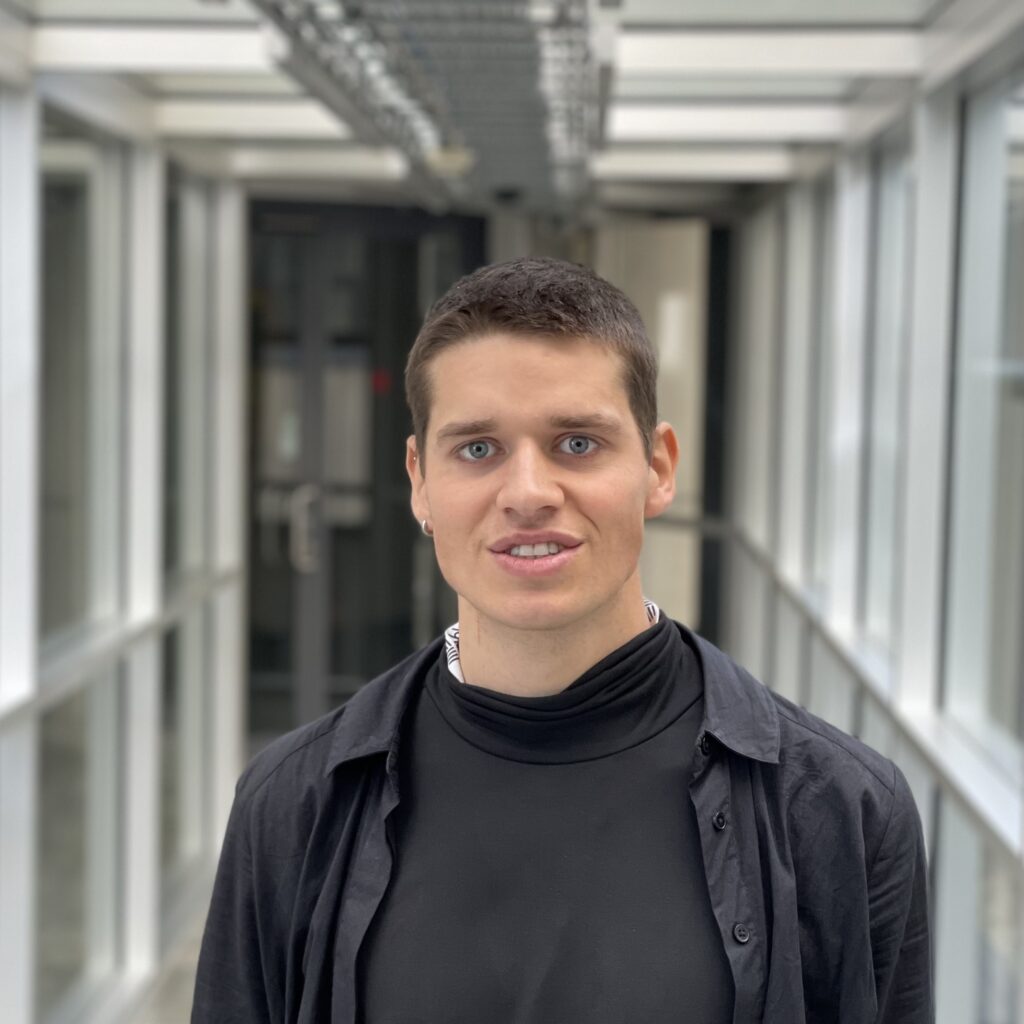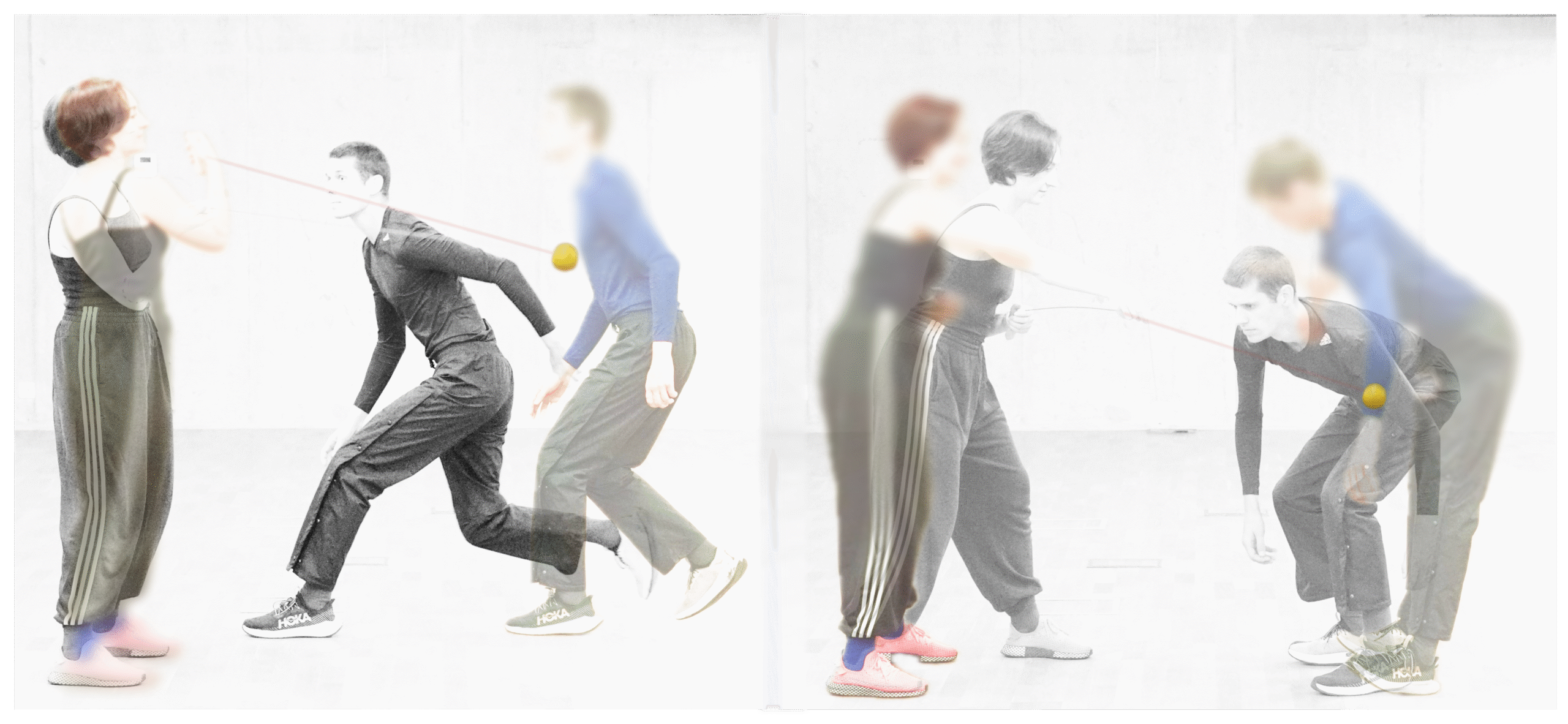::Project by William Primett::
Entrainment specifies a temporal alignment between two or more oscillations that are autonomous yet connected in phase. A phenomenon which provides a rich theoretical understanding of human movement and the embodiment of rhythm induced by external stimuli. The Duophonic Transience project draws parallels between this concept of embodied entrainment and ongoing research on real-time auditory feedback for movement using embodied sensor data, leveraging latent mapping strategies to influence timing, responsiveness, and shared intentionality.
The project adopts a movement technique and training method developed by the RootlessRoot dance company, entitled Fighting Monkey (FM), which is aimed at provoking decision-making under conditions of uncertainty through partnering exercises, designed to develop motor adaptability, coordination, and resilience.
Using a combination of inertial, physiological and acoustic sensors, a tangible artefact is orchestrated around this practice, and physical prop, the FM Practice Ball, designed to support partnering exercises by providing dynamic problem spaces. Acoustic vibrations are transformed using the Real-time Audio Variational Encoder (RAVE) framework to navigate between a vast range of sonic textures, while selected latent space dimensions are conditioned by wrist motion and muscular activity.
Further details about the technical specification and design can be found on our Software page.
William Primett

William Primett is a Research Fellow at Tallinn University, specialising in Movement Computing and Computational Creativity. Previously, affiliated with the AffecTech consortium supported by the Marie Sklodowska-Curie Innovative Training Network, pursuing the design of wearable technologies for emotional understanding in consideration of mental health disorders. The outcomes of which contributing to their PhD thesis “Non-Verbal Communication with Physiological Sensors: The Aesthetic Domain of Wearables and Neural Networks” (2023), advocating for non-representational biofeedback appropriate for interpersonal dialogue. William’s current research aims to compile principles in computational neuroscience, somaesthetic enquiry and narrative structure in audio-visual media.
Link: wprimett.github.io
MODINA Research Project
Duophonic Transience is a MODINA research project which studies concepts and techniques developed during the MODINA project, led by the Tallinn University research team.

